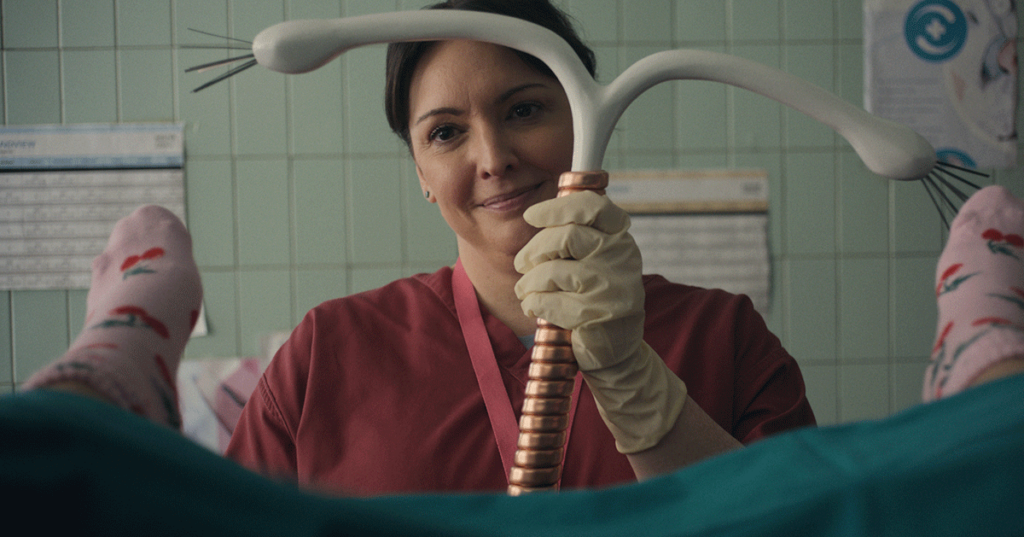With C-suite leaders from iconic brands keynoting sessions, leading workshops and attending networking events, Brandweek is the place to be for marketing innovation and problem-solving. Register to attend September 23–26 in Phoenix, Arizona.
In a new ad from Bodyform, the Essity-owned U.K. feminine protection brand, a doctor tells a woman: “It’s just a period.”
His words trigger a collective sigh from the chorus. As any woman or person who menstruates knows, it’s never just a period, which is the overarching message of Bodyform’s campaign.
Bodyform (known as Libresse in other markets) has a long history of confronting toxic stereotypes and breaking taboos about periods in its advertising. That is present in its latest commercial, too. Still, this time, the brand goes beyond taboo-busting by advocating for better education about women’s bodies and health throughout their entire lives.
“Never Just a Period,” created by Essity’s longtime agency, AMV BBDO, aims to start an open conversation about the dissonance between what women are taught to expect and the reality of their experiences around menstruation.
Directed by Lucy Forbes—director of recent Netflix show Eric—the film uses a mix of comedy and hyperbolic visuals to depict women’s experiences and emotions that are often ignored or dismissed. The scenes include discovering unexpected discharge smells, facing doctors who dismiss pain, getting your period while breastfeeding and having a coil inserted.
Throughout, a female-only, Greek chorus-style orchestra responds to the ups and downs, surprises and pain. The chorus “provides a sense of collectivity and solidarity,” explained Lauren Peters, one of the creatives behind the ad.
There are also moments of exaggerated comedy, like when a doctor inserts a giant coil.

“We have this culture of dismissal, minimizing and ignoring [women], so it felt important that through the craft, we made these experiences feel big, real and to be noticed,” Peters said. “Humor allows you to laugh at the absurdity of the situation, but not at the expense of understanding the reality of it.”

